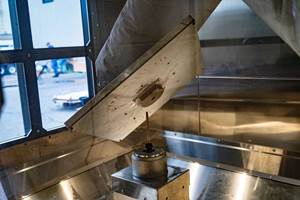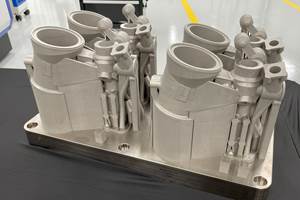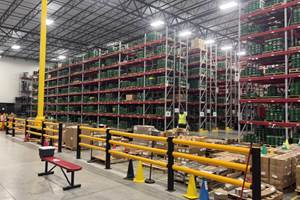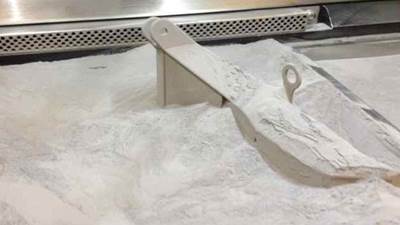3D printing of custom medical devices has the potential to reshape the healthcare industry globally. But currently, these devices are disproportionately available throughout the world, tracking with larger trends in healthcare spending.
“90% of the healthcare spending serves only 10% of the world population,” says Dr. Boonrat Lohwongwatana, a metallurgical engineering professor at Thailand’s Chulalongkorn University and cofounder of a business that aims to shift this ratio. His company, Meticuly, was established in 2017 to bring affordable, custom medical implants to Thai patients. Using a combination of artificial intelligence (AI) algorithms, simulation software and metal 3D printing technologies, Meticuly’s process can deliver custom bone prostheses in just 7 days, at costs only 10-30% higher than conventional, off-the-shelf implants.
Challenges of an Emerging Economy
Readers of this publication are likely already familiar with the benefits of custom medical implants. A device designed and made to suit the patient can result in easier surgeries, shorter time spent in the operating room, faster healing, and better outcomes overall. These advantages carry over to the Meticuly model, but there is more at stake in Thailand, where medical devices are generally imported from abroad. Hospitals cope by keeping large amounts of implants in inventory. But only common implants are readily available, and these are not necessarily the best solution for Thai patients.
“Off-the-shelf standard-sized bone implants are mostly based on Western anatomical data, so most standard-sized implants require a lot of work and time to adjust the shape to match Thai patients’ bodies,” Dr. Lohwongwatana explains. “Moreover, these probably mismatched implants may result in surgical failure and revision surgery.”
There are some Western companies that sell custom implants in Thailand, he notes, but these are much more expensive than off-the-shelf options and add time to the treatment process, causing patients to wait weeks for surgeries. “In many cases patients choose not to wait or simply cannot afford the implants,” Lohwongwatana says, which may mean accepting an amputation or other treatment that can be performed more quickly.
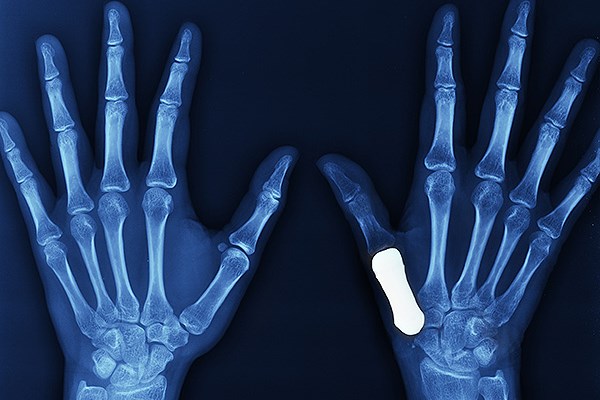
Dr. Lohwongwatana, Dr. Punyaratabandhu and Dr. Puncreobutr achieved clinical use of a 3D printed titanium thumb prosthesis in 2015. The success of this implant and subsequent cases helped inspire Meticuly’s founding and mission. Image Credits: Meticuly
Meticuly was founded to provide a local, custom and affordable option to Thai patients and surgeons. Lohwongwatana learned about the need for such an option through his research in high-precision manufacturing with a focus on 3D printing. He had been approached by several medical doctors with requests for custom-made prostheses, and in 2015 created the world’s first titanium thumb prosthesis with medical professor Dr. Tipachart Punyaratabandhu. Together the two continued to use metal 3D printing technology to save more fingers and arms from amputation, but their capability was limited through research funding. Lohwongwatana co-founded Meticuly along with Dr. Chedtha Puncreobutr in 2017.
The company works with surgeons across the country to design and manufacture metal 3D printed bone prostheses, made with either direct metal laser melting (DMLM) or selective laser melting (SLM), as well as plastic fused filament fabrication (FFF) surgical guides. Thai surgeons and patients now have an option for custom implants much closer to home, accessible at lower cost and shorter timelines.
“We want to make personalized implants and surgical solutions affordable for everyone, anywhere in the world.”
“The name of Meticuly came from the word ‘Meticulously’ which has become our golden standard for high-precision manufacturing,” Lohwongwatana says. “Patients will always receive a meticulously crafted implant device and surgical guide system that is designed and personalized just for them.” Personalization is only part of what Meticuly represents and aims to offer, however. “We want to make personalized implants and surgical solutions affordable for everyone, anywhere in the world,” he says. “We aim to make our technology truly affordable and accessible by paying close attention on ways to save cost and expedite the manufacturing processes while adhering to the Western world’s medical device manufacturing regulations.”
From Scan to Implant in One Week
Rather than use an ill-fitting off-the-shelf implant or wait weeks for a custom device made abroad, Thai surgeons now have the option of obtaining bespoke bone implants from Meticuly at a reduced cost and in a matter of days. A surgeon uploads a patient’s CT scan to Meticuly’s AI cloud server and then uses collaborative software to work with the company on the surgical approach and implant design aided by AI algorithms. Once confirmed by the surgeon, the design is sent to a manufacturing facility (either Meticuly’s own facility or that of a local partner’s) where the implant and corresponding surgical guides are 3D printed. The final items are packaged, sterilized and delivered to the hospital’s surgical theater.
The entire process from receiving the CT scan data to delivery of a 3D printed implant can be accomplished within just 7 days, Lohwongwatana says. Some part of this time savings comes from the metal 3D printing process itself; DMLM and SLM can deliver the implant in fewer steps than required by conventional machining. Part of it comes from location; the ability to manufacture bone prostheses in Thailand avoids the shipping and potential pitfalls of importing them.
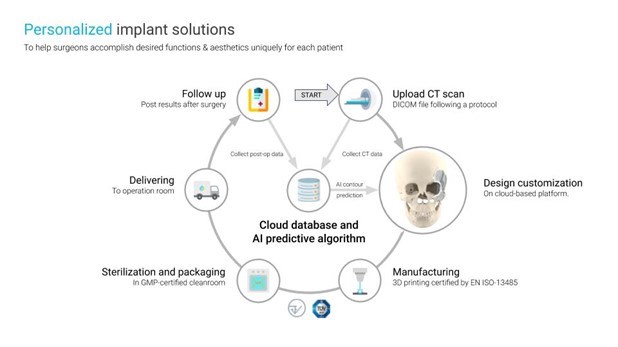
Meticuly’s implant design and manufacturing workflow utilizes AI and cloud-based collaboration to speed the steps from CT scan to 3D printing. Image Credit: Meticuly
But the real savings is in what happens before the 3D print ever begins. According to Lohwongwatana, there are two keys to the accelerated timeline. First is the design process, aided by artificial intelligence (AI). Custom-made algorithms automate the labor-intensive modeling tasks typically performed by design engineers. Additionally, Meticuly’s implant solutions and design workflow have been developed using a wide range of clinical information and cadaveric data to ensure sufficient biomechanical properties over a wide range of anatomy variation; there are very few cases that go out of range that might require special design consideration. Post-operative results are compared with pre-op planning to continually improve these predictive algorithms.
Second is simulation-supported build preparation; once the metal 3D printing process is determined, Meticuly uses a combination of off-the-shelf and proprietary software to simulate various aspects of the build for more efficient manufacturing. “We use simulation to optimize the support structure needed and orientation for each form of 3D printed solid metal part to achieve desired printing quality under minimum support structure and part height,” Lohwongwatana says. Not only does this strategy shorten the timeline from design to build, it also reduces the time needed for the actual print by limiting the use of supports and total number of layers necessary.
The speed of this planning and 3D printing process helps to keep the implants affordable, alongside cost savings from other measures. Meticuly’s online collaboration platform reduces the number of middlemen involved in sourcing a custom implant and any necessary surgical guides. Batching implants together in the printer and reusing unsintered titanium powder creates savings in machine time and material. And, the on-demand nature of manufacturing custom implants avoids the inventory costs associated with off-the-shelf devices.
3D Printed Implants for Thailand and Beyond
To date, Meticuly has provided bespoke implant solutions for more than 350 patients treated in Thailand and the surrounding region, for 42 different bone locations in the body. Patients have ranged from a boy afflicted by bone cancer in his shoulder to a mother who needed a cranioplasty after suffering a severe blockage to her brain. Thanks to Meticuly’s work, these patients were able to receive custom implants quickly and at affordable cost.
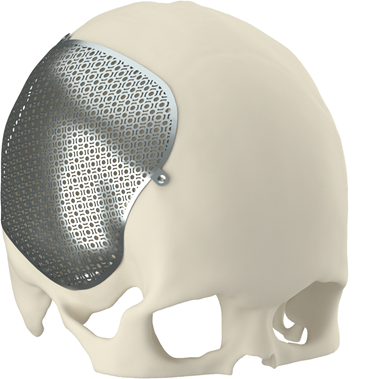
Meticuly’s local and affordable manufacturing workflow means that Thai patients now have access to better care and devices. This custom implant for a cranioplasty is just one example.
“We have stayed true to our goal to provide surgeons and patients with better surgical treatment options under more affordable price than other custom-made implant providers,” Lohwongwatana says. “Our products are priced at just 10-30% above standard implants, lowering the bar for entry. As public hospitals do not have a reimbursement scheme for custom-made implants, we have also set up donation campaigns with leading public hospitals to subsidize their out-of-pocket expenditure for our solution.”
As Meticuly continues to produce implants, its AI-based design strategy and build simulations will become smarter and the company will be able to help more patients, perhaps in different ways. One possible route that Lohwongwatana and his colleagues are exploring is the customization of off-the-shelf implants in lieu of producing each device from scratch. This strategy could leverage the same benefits of 3D surgical planning and digital implant design, but would allow surgeons and manufacturers to work with existing inventory. The ability to adjust standard-sized implants could help advance the adoption of 3D printing technology as well.
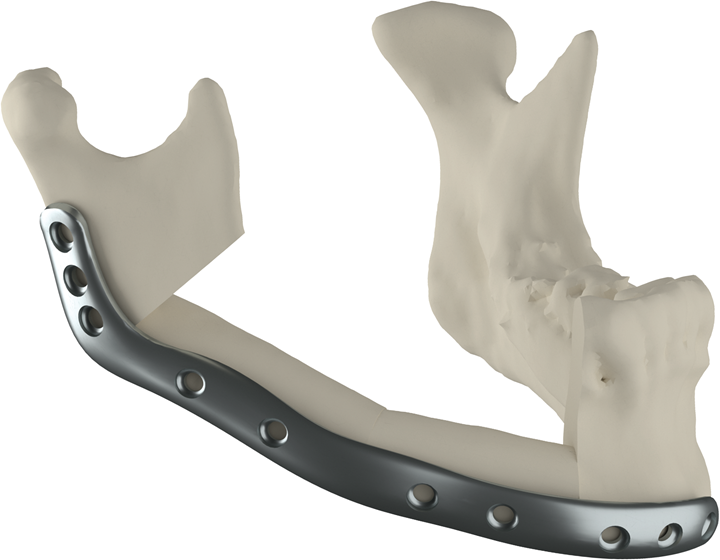
To date, Meticuly has provided implants to 350 patients for 42 different bone locations, including the jaw.
But looking beyond Thailand, Meticuly’s model and tools could be applied to improve healthcare and make implants more accessible in other parts of the world. Its automated design process overcomes many of the current challenges with implant manufacturing workflows, while on-demand 3D printing consolidates and localizes production. The strategy could allow for medical devices to be made anywhere in the world where there is a certified facility equipped with a suitable 3D printer.
“We believe that 3D printing technology can also help surgeons and patients in other emerging economies,” Lohwongwatana says. “In early developing countries in Asia and Africa, where many people have no reimbursement or insurance support, we see that the focus on affordability is more important than ever.”
“...everyone should be able to afford personalized implant and healthcare anytime, anywhere in the world.”
The ability to make or adapt implants quickly and locally frees hospitals and patients from the costs, timelines and constraints of importing these devices. Furthermore, those custom implants are more suitable solutions for the patients that they serve. People living in emerging economy countries all over the world could have access to better medical treatment options and better orthopedic, neuro and plastic surgery outcomes as a result.
As a next step in advancing this vision, Lohwongwatana is currently completing a Leaders in Innovation Fellowship from the Royal Academy of Engineering, a networking and business training program in the UK that provides funding and support to innovators improving the lives of their communities worldwide.
“By accelerating the shift from volume to value in the healthcare industry, we hope we can make the industry more accountable for individual health outcomes,” Lohwongwatana says. “Ultimately, we want to set a new standard in providing fully personalized and high precision treatment for patients, surgeons and healthcare staff, while managing costs efficiently under a personalized medicine concept. In our ideal future, everyone should be able to afford personalized implant and healthcare anytime, anywhere in the world.”
Related Content
The Cold Spray Solution to the Casting, Forging Supply Chains
Startup HAMR Industries performs additive manufacturing work at Neighborhood 91 that provides an alternative to traditional casting and forging. Success so far has led to redefining the limits of its additive equipment.
Read MoreTwo 12-Laser AM Machines at Collins Aerospace: Here Is How They Are Being Used
With this additive manufacturing capacity, one room of the Collins Iowa facility performs the work previously requiring a supply chain. Production yield will nearly double, and lead times will be more than 80% shorter.
Read MoreWhy AM Leads to Internal Production for Collins Aerospace (Includes Video)
A new Charlotte-area center will provide additive manufacturing expertise and production capacity for Collins business units based across the country, allowing the company to guard proprietary design and process details that are often part of AM.
Read MoreDo Distributors Dream of Digital Inventory? Würth Additive Group Does
It’s more than a dream for Würth Additive Group and its parent company, in fact. Along with supplying additive equipment, the group is now developing solutions for sourcing 3D printed parts in a reliable, elastic digital inventory model.
Read MoreRead Next
Postprocessing Steps and Costs for Metal 3D Printing
When your metal part is done 3D printing, you just pull it out of the machine and start using it, right? Not exactly.
Read More3D Printed Polymer EOAT Increases Safety of Cobots
Contract manufacturer Anubis 3D applies polymer 3D printing processes to manufacture cobot tooling that is lightweight, smooth and safer for human interaction.
Read MoreCrushable Lattices: The Lightweight Structures That Will Protect an Interplanetary Payload
NASA uses laser powder bed fusion plus chemical etching to create the lattice forms engineered to keep Mars rocks safe during a crash landing on Earth.
Read More

.jpg;width=70;height=70;mode=crop)












